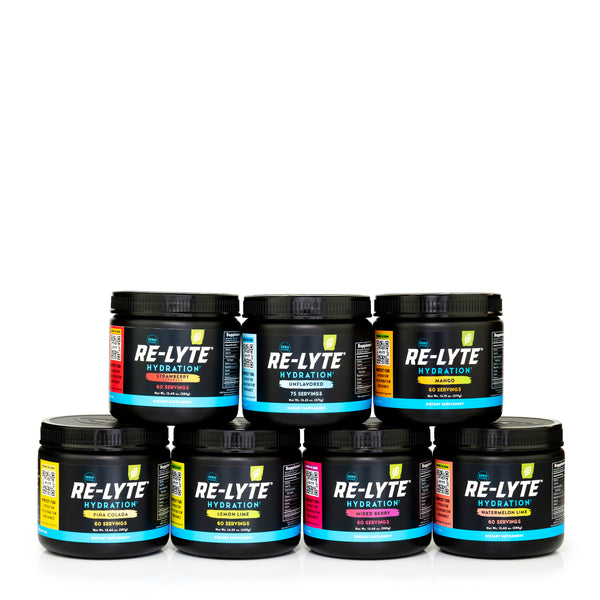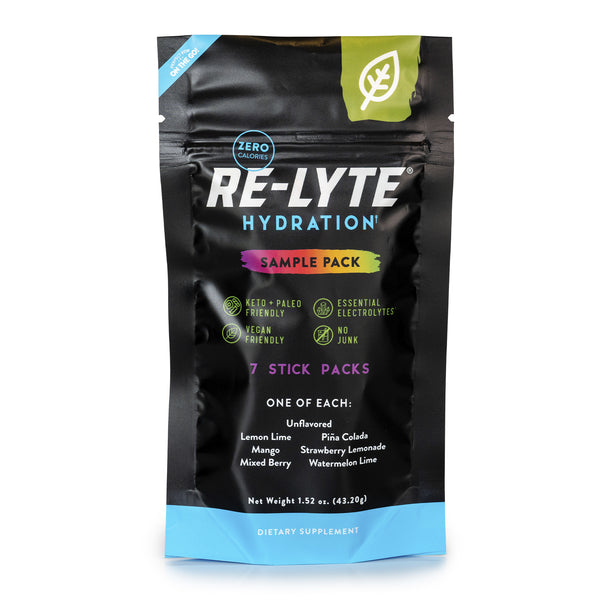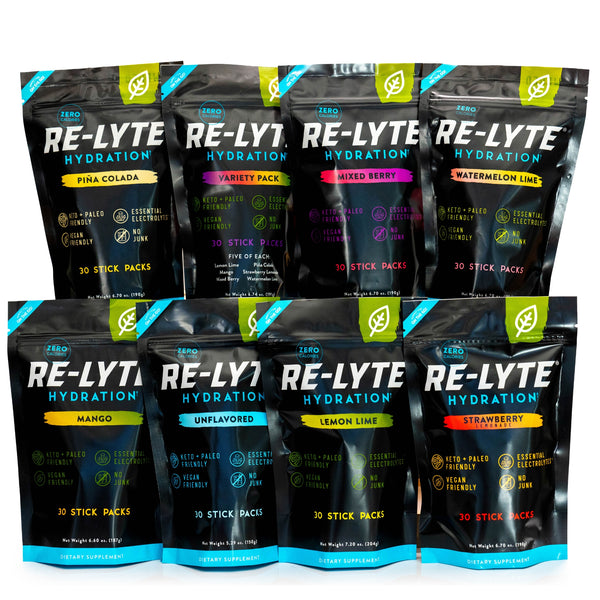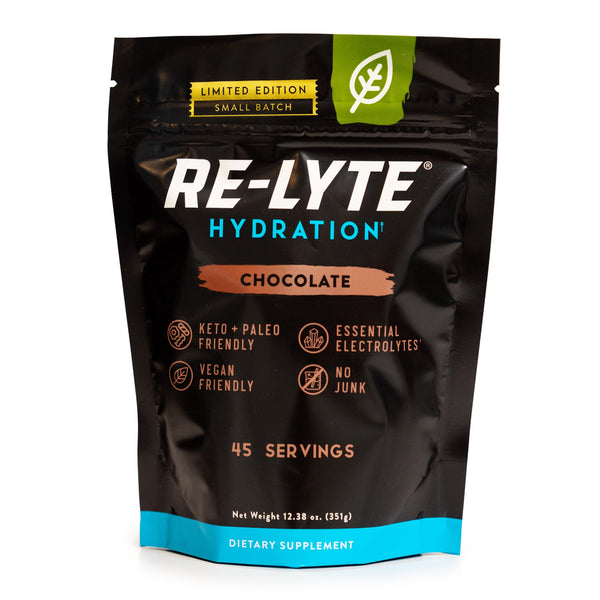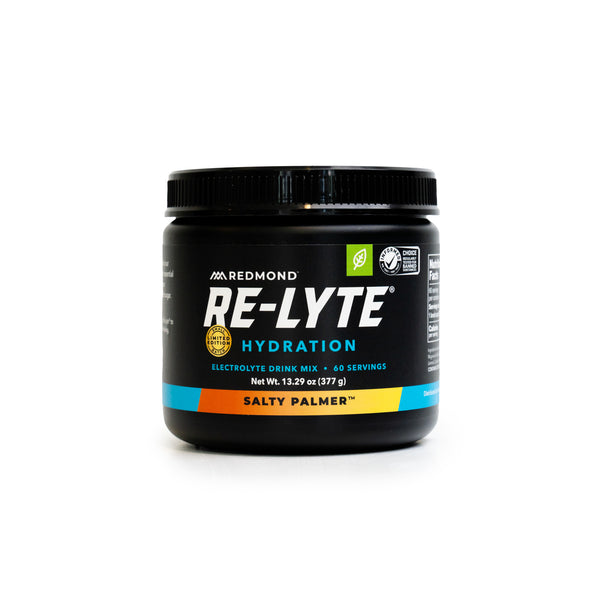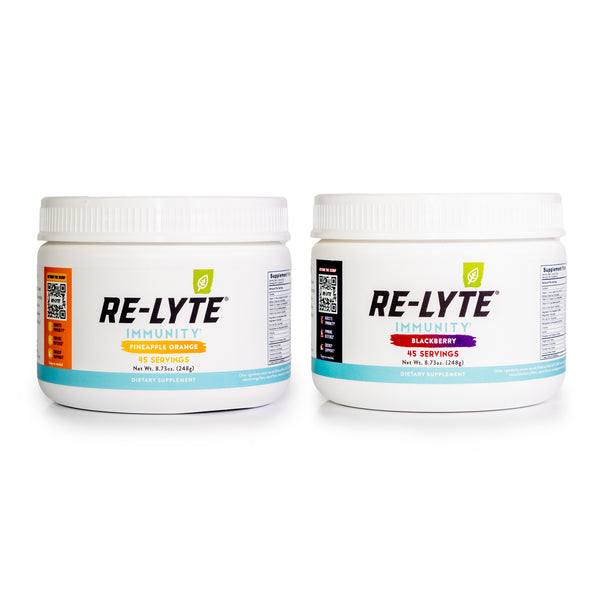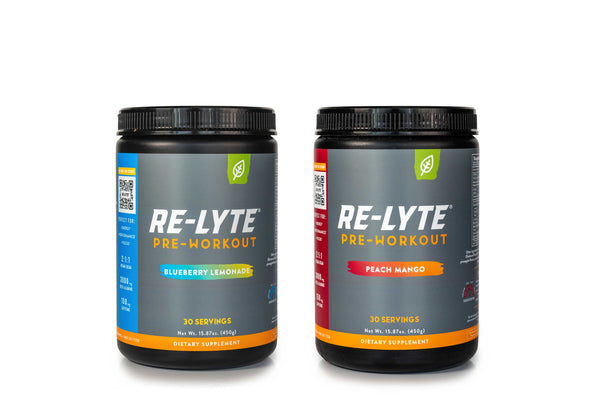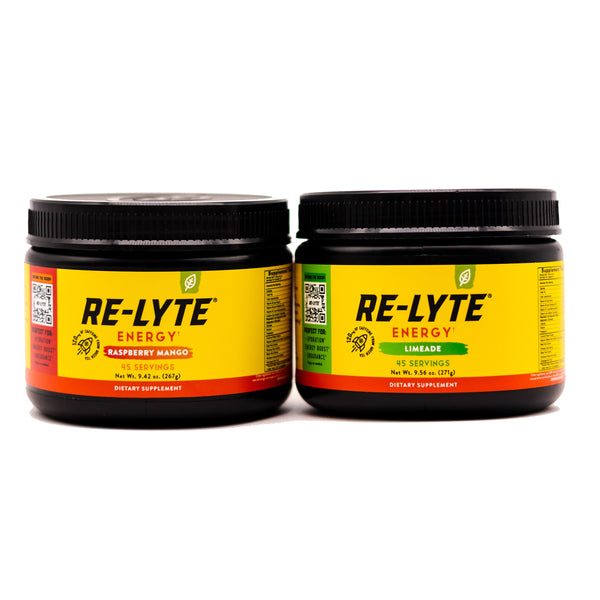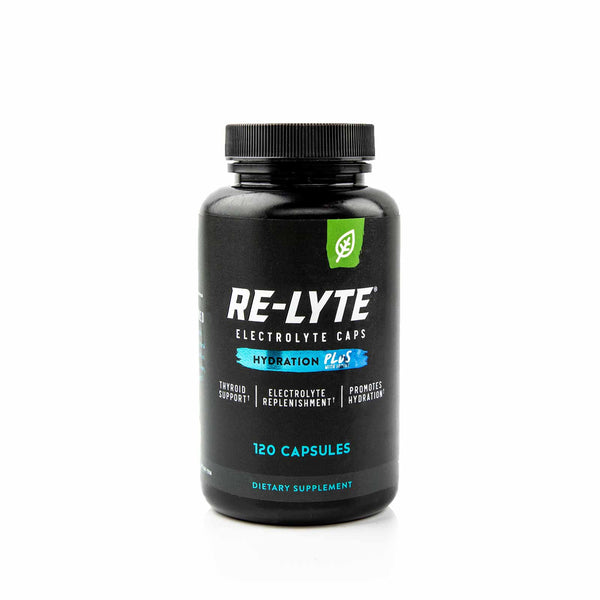How Can I Replace Electrolytes While Fasting?
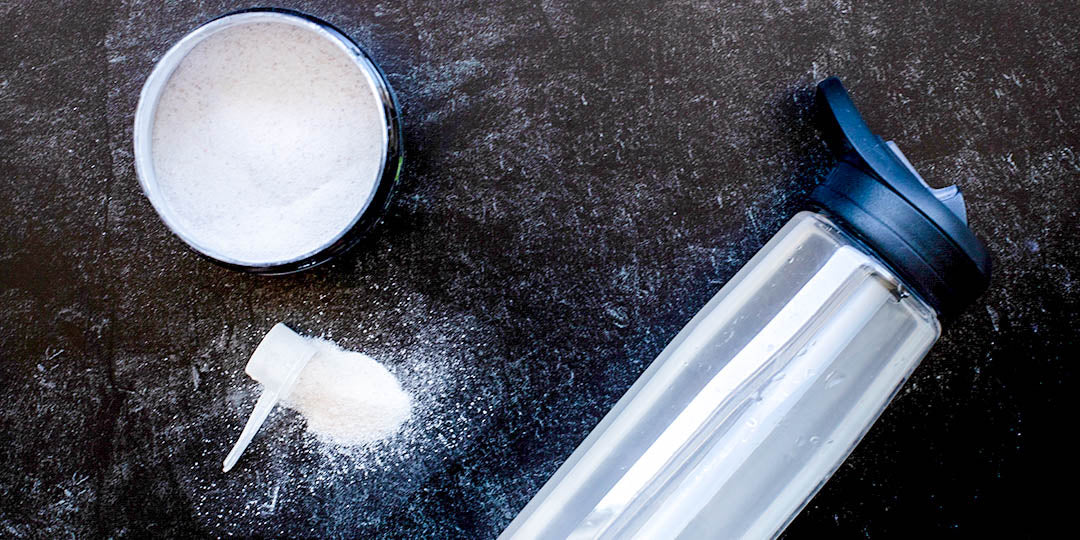
Article at a Glance:
- If you don't get enough electrolytes while fasting, you'll feel lousy.
- Getting enough electrolytes while fasting is tricky, however, because most of our electrolytes come from food.
- Many health and fasting experts say it's okay to consume 50 calories or less during a fast because you'll still stay in a state of ketosis.
- If you're okay with consuming some calories during your fast, you could sip on small amounts of coconut water, bone broth, or pickle juice to replenish electrolytes.
- Re-Lyte Hydration is another great option for replenishing electrolytes during a fast because it contains zero calories.
How come some people feel full of life during a fast while others feel like they have the flu?
The answer, my friends, is electrolytes.
Electrolytes are essential minerals you get from food. So, as you can imagine, not eating would create some problems in the electrolyte department. Add a little extra water to the mix (most of us drink more water when we’re fasting) and any lingering electrolytes get flushed down the toilet (literally).
There are four electrolytes you need to pay close attention to if you’re going food-free for a while (especially if you’re doing it for 24 hours or more):
- Sodium
- Magnesium
- Potassium
- Calcium
Now, if you’re low on any of these electrolytes, you’ll feel lousy. You’ll get headaches, dizziness, muscle cramping, constipation, heartburn— the whole works. That’s because these minerals are heavy-hitters. They regulate nerve and muscle function. They keep you hydrated. They balance your pH levels. Just a few essential things that keep you alive and mobile—no biggie.
That leads us to the million-dollar, or more accurately, the zero-calorie question— how do you replenish your electrolytes when you’re not eating anything?
It sounds a bit like a riddle, honestly….how do you get electrolytes (which come from food) when you can’t eat any food? But trust us, there is a way around this quandary.
Need fasting advice and support?
JOIN OUR FASTING GROUP ON FACEBOOK
How *not* to replenish electrolytes while fasting
Before we dive into the solution to your fasting-electrolyte dilemma, let’s talk about how not to replenish your electrolytes while fasting.
When you fast, your goal is to keep your calorie intake as low as possible, so your body goes into a state of ketosis where it burns fat as fuel instead of sugar. You don’t necessarily need to keep your calorie count at zero (although, that is the goal for many fasters).

You do, however, need to keep your calorie intake under 50 calories. If you don’t, you’ll miss out on the many benefits of ketosis, like weight loss, reduced inflammation, lower cholesterol, and balanced blood sugar. And all that annoying stomach grumbling will have been for nothing. Uggh.
So clearly, any electrolyte solution that exceeds that 50 calorie mark is a big no-no for fasters. But depending on how strict you’re being, you could hypothetically sip on bone broth, have a bit of coconut water, or even sip on pickle juice to replenish electrolytes without leaving ketosis— as long as you pay close attention to calorie intake.
Of course, if you’re a fasting purist, you may be of the mind that any calories, carbs, or protein you consume technically breaks your fast. And we admire that dedication enough to have created a product that supplies the necessary electrolytes for fasting. Luckily, there’s a simple way to keep your fast and your electrolytes too.
Redmond Re-Lyte: The no added sugar electrolyte drink for people who don’t do sports drinks
Re-Lyte hydration is the zero calorie hero that can rescue you from a miserable fast. It’s a powdered blend of perfectly balanced electrolytes that you can add to your water, coffee, tea, or other fasting-friendly beverages.
Now, Re-Lyte is far from the only electrolyte powder out there. But there are a few reasons why it stands apart from the rest. First, it contains a research-backed ratio of electrolytes. A serving contains:
- 810 mg of sodium
- 400 mg of potassium
- 1,280 mg of chloride
- 60 mg of calcium
- 50 mg of magnesium
- 80 mg of coconut water powder
- 60+ trace minerals
Re-Lyte also contains more sodium than the average electrolyte product. Most of these products contain less salt than you’d lose from sweating. If you’re fasting (especially if you’re also exercising), that’s a huge problem because you’re not replenishing those electrolytes through food. Other brands that do contain a higher dose of sodium tend to use the processed white stuff (aka table salt). That salt contains additives and it doesn’t contain minerals like the Real Salt we use in Re-Lyte does.
Also, Re-Lyte isn’t sweet like other electrolyte powders, which is perfect for fasters. Did you know that a sweet taste on your tongue can trigger higher blood sugar even if the sweetness came from a zero-calorie sweetener? That’s because your body is trained to respond to sweetness with higher blood sugar, and even low-cal sweeteners can trick it into doing exactly that.
Our Unflavored Re-Lyte is for fasters who don’t mind (or kind of love) a salty taste sensation. It’s zero calorie with no stevia or frilly flavors. For those who want something a little more palate-friendly, we have a wide variety of flavored Re-Lyte that also contain zero calories but do include natural flavors (derived primarily from fruit and plants) and stevia.
Put simply, Redmond Re-Lyte is a sports drink for people who don’t do sports drinks. It replenishes electrolytes like traditional sports drinks. But unlike traditional sports drinks, Re-Lyte lives up to Redmond Life (and your) standards: Simple, Clean, Real. And with zero calories, it’s the best answer to the age-old electrolyte dilemma so many fasters face.
Comments (11)

Great question Ginger! We have a wonderful article titled “How much re-lyte is too much” that will give you an excellent answer for your question!

Can you take this if you have High Blood Pressure and just
started omad.

I am assuming the flavored ones will not allow me to get into autophagy? That is my goal on my extended fast…would the unflavored be okay if striving for autophagy?





